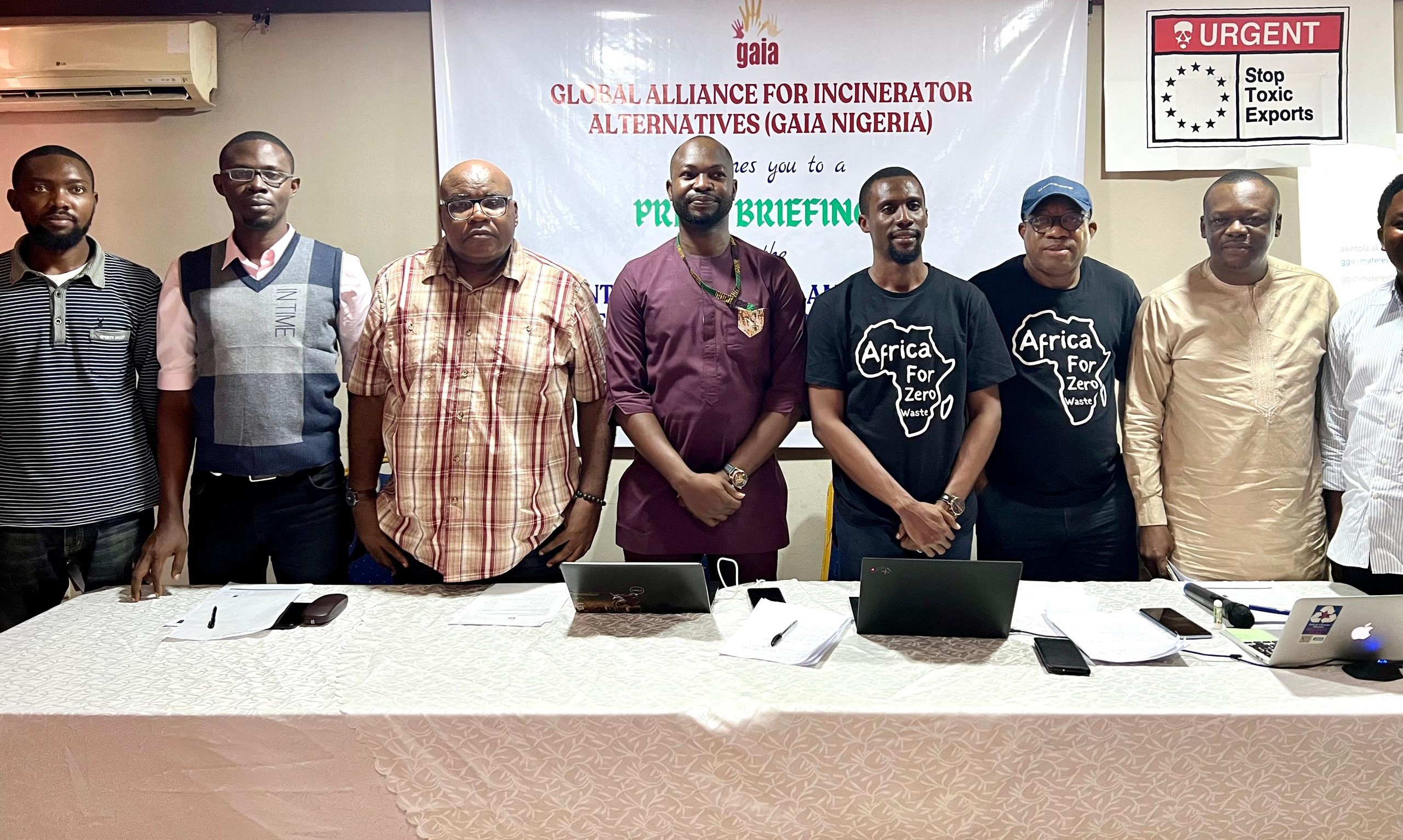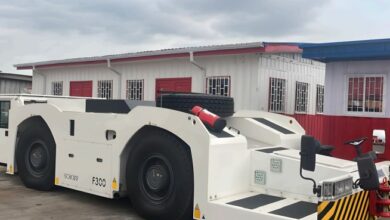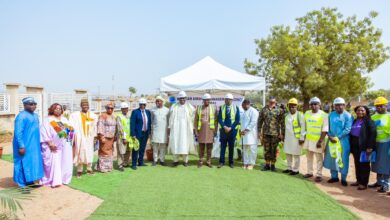Proposed N400b Lagos Waste-to-Energy Incinerator Plants A Misplaced Economic Priority
...Incineration Is Dirty, Obsolete Technology Being Phased Out In Europe, Elsewhere, Group Insists

By Edu Abade
At a time when residents of Lagos State and most Nigerians are facing severe economic hardship exacerbated by unemployment, lack of viable industries and shrinking purchasing power, it will amount to misplaced priority for the state government to spend between $150 million and $250 million (about N400 billion) on Waste-to-Energy Incinerator plants in the state.
 Civil society organizations comprising environmental activists and climate crusaders have expressed concerns that besides the fact that the technology has become obsolete and are being phased out in Europe and other parts of the world, the Waste-to-Energy Incinerator plants being planned for Epe, Ikorodu and other parts of the state remain a misplaced economic priority.
Civil society organizations comprising environmental activists and climate crusaders have expressed concerns that besides the fact that the technology has become obsolete and are being phased out in Europe and other parts of the world, the Waste-to-Energy Incinerator plants being planned for Epe, Ikorodu and other parts of the state remain a misplaced economic priority.
Citing a Memorandum of Understanding (MoU) the Lagos state Government signed with a Dutch company to build the plant for between $150 million and $250 million as announced by Governor Babajide Sanwo-Olu on May 28, 2024, they argued that spending an equivalent of N400 billion (nearly a quarter of the state’s annual budget of N2.267 trillion and an amount higher than some states’ budgets) on a waste-to-energy incinerator project is a white elephant project that will not benefit the state in any meaningful way.
This was the submission of members of over 12 environmental groups, who spoke at a media briefing on: Urgent Call To Halt Lagos State’s Waste-To-Energy Incinerator Plan and Adopt Sustainable Waste under the auspices of the Global Alliance for Incinerator Alternatives (GAIA), a global network of over 1,000 organizations fighting for a future free from waste pollution, especially in Nigeria and Africa.
The groups are, Sustainable Research and Action for Environmental Development (SRADev), Pan African Vision for the Environment (PAVE) in Lagos, Sustainable Environment Development Initiative in Edo State, Community Development Advocacy Foundation (CODAF) based in Delta and Lagos, Environmental Rights Action/Friends of the Earth Nigeria (ERA/FoEN) in Edo and Green Knowledge Foundation (GKF) in Delta.
Others are the Centre for Earth Works (CFEW) in Plateau State, Lekeh Development Foundation (Rivers), Community Action Against Plastic Wastes (CAPws) in the Federal Capital Territory (FCT), Abuja, Policy Alert (Akwa Ibom), Young Farmers Network and Ecocykle (FCT).
Speaking on why Waste-to-Energy Incineration remains a threat to sustainable development in Lagos, Benson Dotun Fasanya of CFEW, contended that waste incineration is the most expensive and least efficient way to generate energy.
“Due to the low calorific value of waste, Waste-to-Energy plants convert less than 25 percent of material energy in garbage into marketed electricity, even lower than other polluting systems (35 percent for coal and 45 percent for natural gas systems).
“Despite low energy production, incinerators are capital-intensive. The general cost is twice the cost of coal-fired power plants. Operation and maintenance costs are also 10 times higher than coal.
“Investing between $150 million and $230 million in large, modern facilities designed by European companies might be lucrative for the companies but not for the nearby communities or for the locals. The waste incineration industry has the highest negative economic impacts from air pollution compared to the financial value added by the industry,” he stated.
Besides the capital intensive nature of incinerators, Dutun Fasanya argued that Waste-to-energy incinerators emit a noxious cocktail of harmful pollutants into the atmosphere, such as lead, mercury, dioxins and furans, adding that facility workers and residents in nearby communities face health risks from direct exposure to these toxins, and there are global risks associated with indirect exposure through the food chain.
Another danger of waste-to-energy incinerators is that the technology contributes substantially to the climate
change crisis in that they emit higher levels of CO2 per megawatt-hour compared to coal, natural gas or oil power plants.
Incinerating materials such as wood, paper, yard debris, and food discards are not “climate neutral” rather, incinerating these and other materials is detrimental to the climate and will not help Nigeria meet its commitments under the Nationally Determined Contributions (NDCs).
Citing an earlier report by GAIA, he said energy recovery is not an effective mitigation strategy and that incineration is a major source of GHG emissions, with each ton of plastic burned resulting in the release of 1.43 tons of CO2, even after energy recovery.
“Nigeria signed the Paris Agreement, which agrees to phase out coal-powered plants. However, the Lagos State government intends to build a waste-to-energy facility that emits 65 percent more CO2 than coal-powered plants.
“Waste incineration is incompatible with zero waste solutions, undermines real solutions and a truly circular economy. Once built, incinerators demand a guaranteed stream of waste which becomes a major disincentive for waste prevention and zero waste,” he added.
Another disadvantage is that incinerators offer relatively fewer jobs when compared to recycling, as recycling creates 50 times more jobs than incineration and land filling and lastly that waste-to-energy incineration constitute environmental injustice in that globally, communities have fought against its facilities because they tend to be disproportionately located in low-income communities with burden of high toxicity on residents, accidents and noise.
In his address, Weyinmi Okotie of GAIA stressed that the groups seek a just and sustainable world where communities are empowered to manage waste responsibly and live in a healthy environment.
He pointed out that incinerators are facilities that treat wastes by burning them adding that they come under several names such as “mass burn incinerators,” “thermal treatment facilities,” or “waste-to-energy” (WTE) plants, and involve processes such as combustion, pyrolysis, gasification or plasma. But they all have the same claim-“burning waste will make our waste problems disappear.”
“Not only do incinerators claim to make waste “disappear,” they also claim to produce energy during the process, but studies have shown that this premise is without scientific basis. The process of incineration merely transforms wastes into other forms of wastes, such as toxic ash, air and water pollution, which are harder to contain and usually more toxic than the original form of the waste,” he said.
Representative of SRADev, Dr. Leslie Adogame, said the groups aimed to sensitize members of the public on the environmental and health hazards associated with building a waste-to-energy incinerator and to advocate for more sustainable and inclusive waste management solutions, adding that the Lagos State Government failed to consult widely on a project of that magnitude, and as such the project lacks comprehensive support and sustainability.
Adogame said: “Adopting waste-to-energy technology in a vulnerable place like Lagos poses significant environmental and public health risks. Lagos State should focus on sustainable waste management practices that do not threaten its future or its residents. So we are encouraging Lagos State Government to continue to be part of the solution to the climate crisis and not part of the problem.”
On his part, Akpan Anthony of PAVE, who presented the coalition’s demands, said the groups are advocates for a just, toxic-free zero waste world and urged the Lagos State Government to stop the plans to build a waste-to-energy incinerator plants in Epe and impose a moratorium on the building of any waste incineration plants in Ikorodu and other parts of Lagos.
He recommended the adoption of a zero waste approach and urged the state government to prioritize the implementation of zero waste strategies (which exemplify a truly circular economy driven by strategic approach to resource management and preservation), such as reduction of waste generation, source segregation, recycling, composting and reuse programmes.
Akpan also canvassed broader consultations with members of the public and environmental CSOs, insisting that a comprehensive and transparent consultation process should involve the frontline communities, environmental CSOs, waste management experts and public engagement to accurately inform the public about the potential environmental, social and health implications of the proposed incinerator on the surrounding communities in Epe and their ecosystems.
“The process should be inclusive and prioritize meaningful, equitable participation of all impacted right holders, upholding Free, Prior and Informed Consent (FPIC), which means incorporating waste pickers, waste workers and frontline communities throughout the project lifecycle, starting from the development planning stage,” he said.
Reacting to the plan, Executive Director of Renevlyn Development Initiative (RDI), Philip Jakpor, noted that it was unthinkable that Lagos State has ‘doggedly’ chosen to adopt dirty technologies like the waste-to-energy incinerator plants that are being phased out in Europe and elsewhere instead of cleaner renewable sources and initiatives that safeguard jobs, preserve the environment and protect the climate.
“What the Lagos State Government is embarking on is reflective of the confusion in the country’s just energy transition journey at the federal and state levels. It has always been one short step forward and three or more steps backward,” he cautioned.
Also in his intervention, Director of Campaigns and Administration for Community Development Advocacy Foundation (CODAF), Maimoni Mariere Ubrei-Joe, expressed concern that in spite of efforts by groups to engage and dialogue with the Lagos State Government on the potential dangers of the proposed project, the government built a wall of resistance in ensuring that its officials do not meet members of the groups.
“We firmly believe that the solution to waste management and climate change lies in reducing our addiction to wastes, not in adopting incineration practices that will further undermine human rights and environmental health in communities. We urge the Lagos State Government and the Ministry of Environment to reconsider their approach and work towards a more sustainable and equitable solution,” he stressed.











